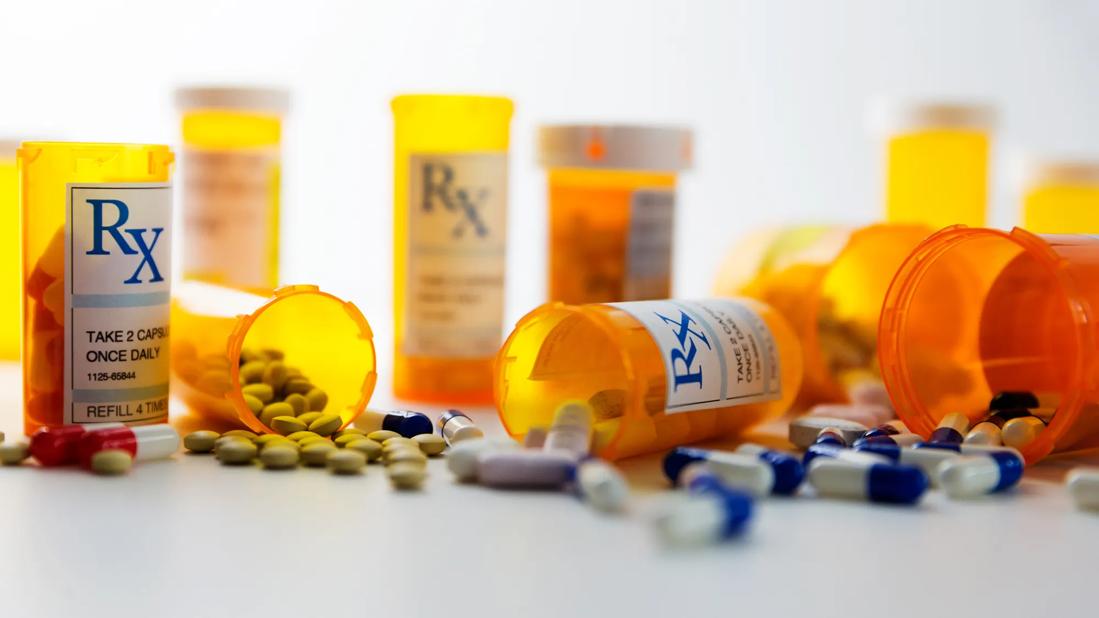These similar versions of brand-name drugs are safe, effective and often less expensive

If you’ve ever taken a prescription to a pharmacy in the United States, odds are you’ve left with a generic medication. That’s because off-brand drugs are used to fill 9 out of 10 prescriptions, reports the U.S. Food and Drug Administration (FDA).
Advertisement
Cleveland Clinic is a non-profit academic medical center. Advertising on our site helps support our mission. We do not endorse non-Cleveland Clinic products or services. Policy
But have you ever wondered what exactly you’re getting with a generic drug? Let’s take a closer look with pharmacist Marcia Wyman, PharmD, BCPS.
When a pharmaceutical company develops a new medicine, the FDA allows it to be the exclusive maker and seller of that drug for a set time under a patent agreement. That lets the company recoup the dollars spent developing and marketing the drug without competition.
Once the patent agreement expires, other drug companies can bring a generic version of the medication to the market.
Generic drugs must be approved by the FDA before they can be made available to patients in the U.S., says Dr. Wyman. The manufacturer must prove that its version is the same as the brand-name drug in several ways, including:
The goal is to establish that a generic medication is the “bioequivalent” of a brand-name drug. By doing this, the generic manufacturer doesn’t have to repeat the costly and time-consuming clinical trials done by the brand-name drug maker to show the medication is safe and effective.
Advertisement
Now, a generic drug can be different from its brand-name counterpart in ways that don’t affect how it works, explains Dr. Wyman. For example, a tablet can be a different color or shape. Generic drugs also may contain different inactive ingredients such as flavorings and fillers.
Companies can charge less for generic medications because they don’t have to spend millions of dollars on research, clinical trials and marketing like the original maker of any brand-name drug.
Generics also create competition in the marketplace, which can drive down prices even further, notes Dr. Wyman.
The lower price tag on a generic medication doesn’t mean lower quality, emphasizes Dr. Wyman.
Manufacturers of generics must demonstrate to the FDA that the ingredients in their drugs are safe and that they’re made using current good manufacturing practices (CGMPs). Once a generic drug is approved and sold, the FDA continues to monitor it, as it also does with brand-name drugs.
Makers of generic drugs are also required to tell the FDA if any serious side effects or dangerous reactions to its drugs are reported by consumers.
There are generic versions of many drugs available today. So, are they the right choice for you? A lot can go into making that decision, notes Dr. Wyman.
Most states have laws allowing pharmacists to substitute a less expensive generic for a brand-name drug unless:
Many hospitals and healthcare systems also have processes in place to evaluate and decide which medicines to offer — meaning they might not make certain drugs available.
Know that you can always request brand-name medications at a pharmacy if that’s your preference, says Dr. Wyman. But be aware that many insurance companies often provide better coverage for generics because of their lower cost.
With so many FDA-approved medications out there, she recommends getting your prescriptions filled at one pharmacy and developing a relationship with that pharmacist. Dealing with a familiar face comes with benefits, after all.
“That way, you can feel comfortable asking questions and having conversations with the pharmacist,” she encourages. “They are going to be able to give you some good advice.”
Advertisement
Advertisement
Learn more about our editorial process.
Advertisement

The little blue pill might help with physical arousal, but there are better treatments for low libido in women

Your body’s response to rapid weight loss from the medication may cause shedding

This medication is best used on a limited basis

Authorized take-back programs, services and drop-off locations are the best, safest way to get rid of expired medicine

These illegal supplements have negative impacts for vital organs and may cause psychosis, heart attacks and more

These creams that you apply to your skin can actually help reduce localized pain, swelling and inflammation

Popular among teens, these inhalants give you a quick high, with serious harmful effects

‘Black box warnings’ on medications outline potential risks and important instructions

Wearing a scarf, adjusting your outdoor activities and following your asthma treatment plan can help limit breathing problems

Your diet in the weeks, days and hours ahead of your race can power you to the finish line

When someone guilt trips you, they’re using emotionally manipulative behavior to try to get you to act a certain way